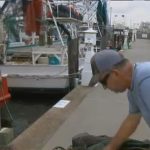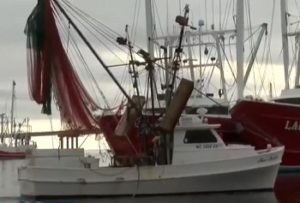Daily Archives: June 3, 2019

Mid-Atlantic Fishery Management Council meeting in New York, N.Y. June 4-6, 2019
The public is invited to attend the Mid-Atlantic Fishery Management Council’s meeting to be held at Yotel Hotel 570 Tenth Ave (at W 42nd), New York, NY 10036, Telephone 646-449-7700 , Briefing Materials & Agenda Overview Agenda >click here< Attend Meeting with Adobe Connect >click here< To Listen Live. 21:00

Louisiana Native Sues Fishing Captain Following Maritime Injury
A Louisiana man is suing a Texas fishing captain following injuries suffered while working on the captain’s vessel. David Robling, the plaintiff, was working aboard the fishing boat, Red Bull, on February 20, 2019, when he suffered injuries resulting from the negligence and unseaworthiness of the ship-captain, Delbert E. Bull, Jr. The suit, filed in the Galveston County District Court, is in accord with the Jones Act, specifically 46 U.S.C. §30104, which protects seamen injured in the course of their employment and which affords them the right to legal action and a trial by jury against the ship’s owner. >click to read<19:45

Twin Disc and its role in D-Day
June 6 marks the 75th anniversary of D-Day – a key event in World War II. Starting that day, wave after wave of Allied troops (approximately 156,000) invaded the Axis-held beaches of Normandy, France. A product made by Racine’s Twin Disc was there, too.,,Virtually every marine gear used by the Landing Craft Vehicle Personnel (LCVPs) that carried troops and equipment to the Normandy beaches was produced at Twin Disc’s manufacturing plant at 14th and Racine streets.,,, . Twin Disc first developed a clutch product for boats (marine gear) in the 1920s. By the late 1930s, this product was used in fishing boats and work boats. >click to read<19:15
Time to Pay Your Respects to the Plywood Boat that Helped Win WWII – The Higgins Boat, named after its inventor, Andrew Higgins, was designed to solve what was basically the “last mile” problem for a military invasion >Video, click to read<
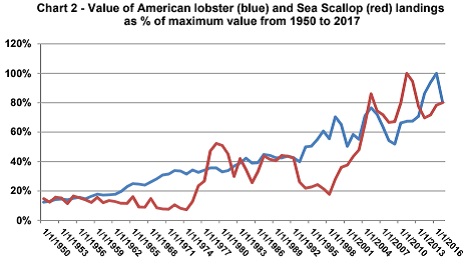
After over forty years of NOAA/NMFS management how are we really doing? Nils Stolpe
The Magnuson-Stevens Fishery Conservation and Management Act – I have seen the focus of government fisheries manage-ment increasingly shift away from the fishermen to the fish. The provisions of the Act as it was originally written were put in place to allow the U.S. fishing industry to regain control of the fisheries in the United States’ highly productive coastal waters,,, The legislation was singularly effective, so effective that within ten years or so of its passage the greatest portion of our domestic fish and shellfish production was being harvested by U.S. fishermen on U.S. vessels. This success was sold to the U.S. public – and the U.S. politicians – as an assault on the “sanctity” of our coastal waters by a burgeoning environmental industry that was (and still is) engaged in non-governmental empire building. This has resulted in a handful of multi-national ENGOs (Environmental Non-Governmental Organizations) that have become at least as influential as the fishing industry in national and international fisheries management. >click to read, and review the links and graphs<16:10
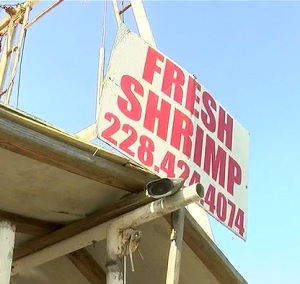
Shrimpers keep their fingers crossed for the upcoming season
It was a busy morning at the Biloxi Small Craft Harbor. Fishermen and shrimpers were getting ready for the 2019 Blessing of the Fleet while selling whatever fresh seafood they managed to catch overnight. “Jumbo shrimp are $4 a pound. How many do want?” asked one of the women selling shrimp on the back of her boat. As their boats pass along the water for a blessing from the priest, the people who make their living out on the water hope for some divine intervention. “Right now there is too much fresh water. No shrimp,” said Lien Nguyen. >video, click to read<

Police believe P.E.I. fish processor scammed out of load of lobster
Police are on the lookout for a truckload of P.E.I. lobster that has gone missing. RCMP Corp. Lisa Jones with the West Prince detachment said a load of lobster left South Shore Seafoods on May 17 destined for Massachusetts, but it never reached its destination. “It was supposed to be delivered on May 20. They got a call from the customer, saying the shipment didn’t arrive,” said Jones. The theft was reported to Prince District RCMP on May 21. >click to read<11:11
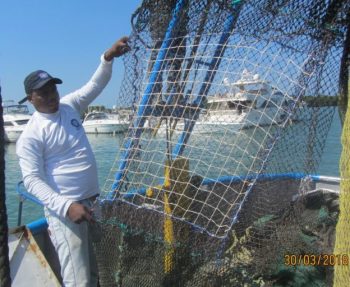
New nets make shrimp trawling more sustainable in Latin America and Caribbean
The FAO is conducting the project, known as The Sustainable Management of Bycatch in Latin America and Caribbean Trawl Fisheries (REYBAC LAC II), between 2015 and 2020 with the intention of meeting international guidelines for the responsible management of bycatch. With the help of traditional and large-scale fishers, the project consists of testing net prototypes that reduce the negative effects of trawling on marine biodiversity while still catching shrimp. The new nets have different characteristics than those usually used by fishers, mainly in regard to the size of the holes in the fabric of the net. >click to read<10:34

Where crab is king: Lucrative fishery hauls in millions while avoiding whales
Bruno Gaudet takes the steps at Cheticamp Boat Builders three at a time. “I’m telling everyone I’m not committing to any more deadlines and hold onto your boat,” said the yard’s 58-year-old owner. Cheticamp Boat Builders is booked with refits and new builds for the next four years. Inside its big steel building on Wednesday were two fibreglass Cape Islanders under construction and outside a new diesel engine was getting lowered into one getting repowered at the pier.,,, The southern Gulf of St. Lawrence crab quota went up 32 per cent to 32,480 tonnes this year. >click to read<10:10

Conflicts, Lax Oversight Shroud This Secretive Fisheries Fund
In the past 10 years, millions of dollars have flowed through an obscure federal fund aimed at supporting commercial tuna fishermen in Hawaii and three U.S. Pacific island territories. But limited oversight, a process of awarding contracts mostly behind closed doors and a reluctance to produce public records about the fund have stymied efforts to find out how the money is being spent, who is receiving it and whether it’s being used in accordance with federal law, a Civil Beat investigation shows. >click to read<09:20











































